Astrology Spread
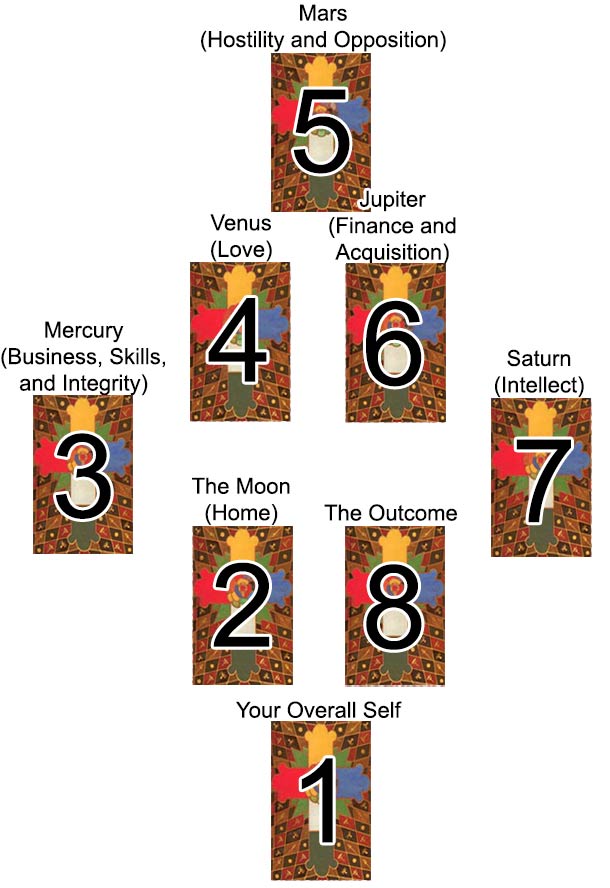
Card Positions
- Your overall self (significator)
- The Moon - home
- Mercury - skills, business, and integrity
- Venus - love
- Mars - opposition and hostility
- Jupiter - finance and acquisition
- Saturn - intellect
- Outcome
Your Astrology Reading
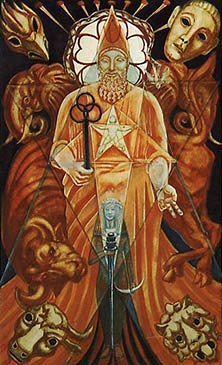 The Hierophant |
|||
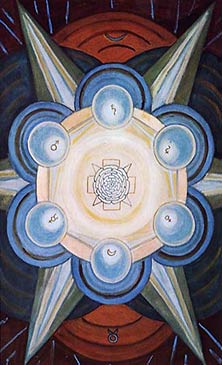 6 of Disks |
 3 of Wands 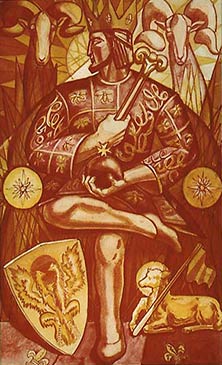 The Emperor |
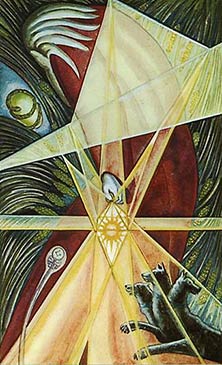 The Hermit 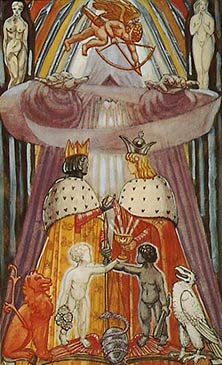 The Lovers |
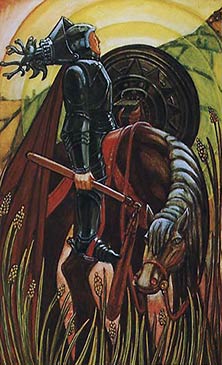 Knight of Disks |
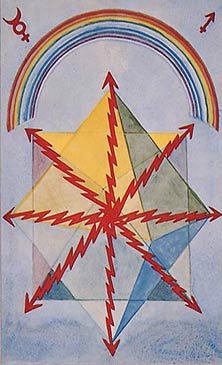 8 of Wands |
|||

8 of Wands
Mercury in Saggitarius - Swiftness
The card refers to Hod, splendour, in the suit of Fire, whence it refers to the phenomena of speech, light, electricity. The pictorial representation of the card shows the Light-wands turned into electrical rays, sustaining or even constituting Matter by their vibrating energy. Above this restored universe shines the rainbow; the division of pure light, which deals with maxima, into the seven colours of the spectrum, which exhibit interplay and correlation.
This card, therefore, represents energy of high velocity, such as furnishes the master-key to modern mathematical physics.

The Emperor
Aries
War, conquest, victory, strife, ambition, originality, over-weening confidence and megalomania, quarrelsomeness, energy, vigour, stubbornness, impracticability, rashness, ill- temper.

6 of Disks
Moon in Taurus - Success
The Number Six, Tiphareth, as before, represents the full harmonious establishment of the Energy of the Element. The Moon in Taurus rules the card; and this, while increasing the approach to perfection (for the Moon is exalted in Taurus and therefore in her highest form) marks that the condition is transient.
The disks are arranged in the form of the Hexagram, which is shown in skeleton. In the centre blushes and glows the light rose- madder of dawn, and without are three concentric circles, golden yellow, salmon-pink, and amber. These colours show Tiphareth fully realized on Earth; it reaffirms in form what was mathematically set forth in describing the Ace. The planets are arranged in accordance with their usual attribution; but they are only shown as disks irradiated by the Sun in their centre. This Sun is idolized as the Rose and Cross; the Rose has forty-nine petals, the interplay of the Seven with the Seven.

3 of Wands
Sun in Aries - Virtue
This card refers to Binah in the suit of Fire, and so represents the establishment of primeval Energy. The Will has been trans mitted to the Mother, who conceives, prepares, and gives birth to, its manifestation.
It refers to the Sun in Aries, the Sign in which he is exalted.
The meaning is harmonious, for this is the beginning of Spring. For this reason one sees the wand taking the form of the Lotus in blossom. The Sun has enkindled the Great Mother.

The Hierophant
Taurus
Stubborn strength, toil, endurance, placidity, manifestation, explanation, teaching, goodness of heart, help from superiors, patience, organization, peace.

The Hermit
Virgo
Illumination from within, secret impulse from within; practical plans derived accordingly. Retirement from participation in current events.

Knight of Disks
Virgo
The Knight of Disks represents the fiery part of Earth, and refers in particular to the phenomena of mountains, earthquakes, and gravitation; but it also represents the activity of Earth regarded as the producer of Life. This warrior is short and sturdy in type. He rides through the fertile land; even the distant hills are cultivated fields.
Those whom he symbolizes tend to be dull, heavy and pre-occupied with material things. They are laborious and patient, but would have little intellectual grasp even of matters which concern them most closely. Their success in these is due to instinct, to imitation of Nature. They lack initiative; their fire is the smouldering fire of the process of growth.

The Lovers
Gemini
Openness to inspiration, intuition, intelligence, second sight, childislmess, frivolity, thoughtfulness divorced from practical consideration, indecision, self-contradition, union in a shallow degree with others, instability, contradiction, triviality, the "high-brow".

